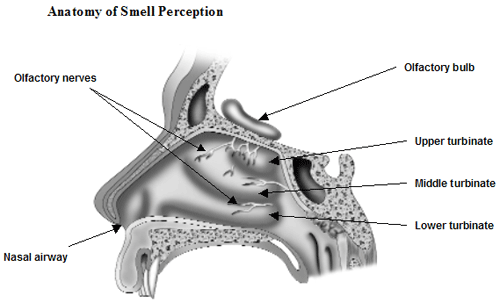Symptoms of Chronic Sinusitis
Individuals with chronic sinusitis may complain of the following: sinus pressure, sore throat, foul smelling breath, hoarseness, post nasal drip, decreased sense of smell, cough, or increased asthma symptoms. Other symptoms include ear pressure, congestion, dizziness and nose bleeds - particularly in children (see Table 15). These symptoms vary since the degree and location of inflammation in the sinuses may vary. Contrary to popular belief, headache is not the most common characteristic of chronic sinusitis. The most frequent complaint related to chronic sinusitis is nasal congestion with or without post nasal drip. Chronically infected sinuses are typically filled with dried secretions. Secretions may or may not drain easily into the nose. Other symptoms include sensitive facial fullness and loss of smell. You may experience fatigue, poor concentration and decreased productivity. You also may exhibit signs of depression.
Signs and Symptoms of Chronic Sinusitis
- Nasal blockage or congestion
- Ear pain, pressure, or fullness
- Discolored nasal secretions
- Recurrent ear infections
- Facial pressure or pain
- Sore throat or hoarseness
- Cough, exacerbation of asthma
- Bad breath
- Decreased or absent sense of smell
- Post nasal drip
- Fatigue, poor concentration, depression
- Hives
- Dark circles and/or puffiness around the eyes
In contrast to acute sinusitis, you usually do not experience tenderness over the affected sinus and/or fever. Sometimes you may feel facial pain or a pressure sensation. This gets worse by lying down or bending over. Pain may also radiate into other areas of the face and head like the temple area or the top of the head.
Another common feature of chronic sinusitis is a lost or decreased sense of smell. Improved sense of smell usually occurs during successful treatment or when the disease resolves. Changes in sense of smell may be related to nasal blockage due to swelling of mucous membranes or from nasal polyps which prevent odor molecules from reaching odor receptors along the top surface of the nasal passage.

You may also have a distorted sense of smell due to a change in the bacteria found in the sinus and nasal passageways. This problem may be caused by anaerobic bacteria. Anaerobic bacteria grow well in low levels of oxygen, such as that found in blocked sinus cavities. Discharge containing anaerobic bacteria is often foul smelling and may affect smell perception. In addition, longstanding inflammation in the sinuses and nose may be toxic to the nerve endings responsible for the sense of smell. Damage to these nerve endings can cause permanent changes in smell.